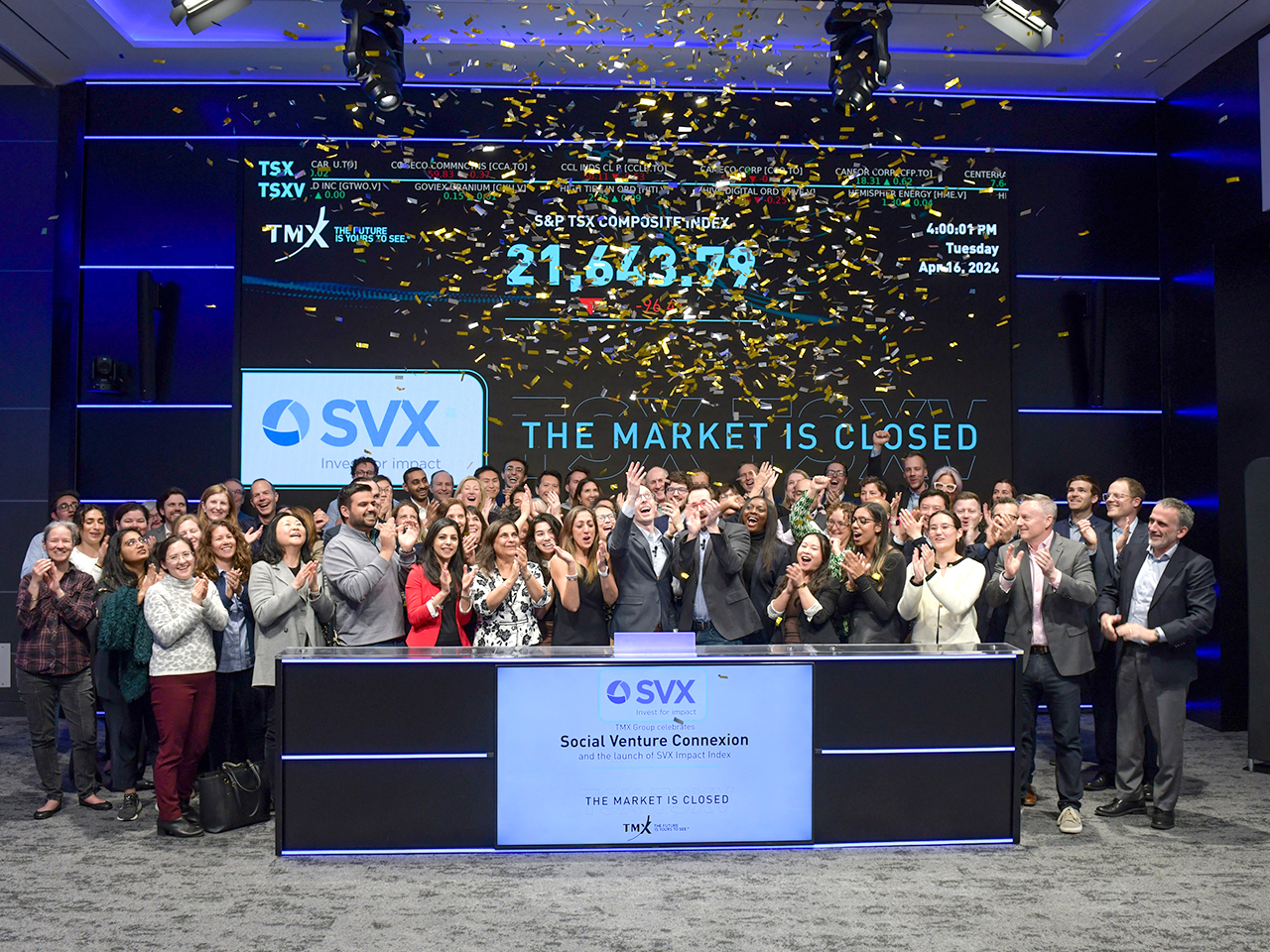SVX launches major update to impact investing opportunity database
Why It Matters
There is a significant demand for access to impact investing products and there is a greater supply than most investors are familiar with. SVX Impact Index aims to correct this asymmetry.

A new version of one of Canada’s largest social purpose impact databases has been launched in the hopes more money will flow to projects that produce meaningful change.
Ontario non-profit financial services firm SVX launched the SVX Impact Index on April 16. The firm works with investors, funds, foundations, and other institutions to ensure that one day, “all investments are impact investments,” said Adam Spence, SVX’s CEO.
“This the 3.0 version of our database,” said Spence.
The Impact Index lists impact investing debt and equity opportunities available to Canadian investors, ranging from private equity funds to housing bonds. Most investments are in Canada, but some could be abroad, such as B.C. Deetken investing in South America.
Version 1.0 dates back to 2007, when SVX was launched. The database proposed limited investment opportunities in the early days of impact investing.
A decade later, version 2.0 added more offerings. Transaction fees were charged to the issuers, and access fees were charged to the investors.
Version 3.0 eliminates the issuers’ fee and the general database’s access fee for the general database, proposing 200 “self-declared” investments.
For the Impact Index +, a subdatabase, access fees range between $5,000 and $10,000, depending on the type of investor. Investment opportunities in the subdatabase have more rigorous impact standards, requirements, and external reviewers, said Spence.
The 15-person SVX team screens all investments proposed in the general database and the Impact Index + before making them available to investors.
Those vetting requirements include third-party standards or agreements, a third-party code of conduct the issuer must obey, and a demonstrated commitment to advancing racial or gender equity within management governance and business operations.
The need impact investing database
The SVX Impact Index aims to fill the gap in impact investing product availability, said Spence, comparing the impact investing market to a set of farmers’ markets.
“Both are spread across the country and seasonal. You do not know when they are open for business, so you need someone to tell you where and when to find the products you are looking for.
“Or it would help if you had a map. Our Impact Index is both. It is a map to help the investors locate the products, and they can turn to our team, who can advise them.”
The investments accepted
The database does not accept any individual ventures, said Spence.
“You won’t find any startup or entity raising common shares. But we are considering a wide range of products: clean tech funds, like Quebec Cycle Capital; loan funds, like New Brunswick Kaleidoscope; or community bonds focusing on affordable housing, like B.C. Propolis.”
All investments must align with impact themes such as climate, biodiversity, indigenous reconciliation and economic development, community housing, sustainable food systems and beyond. The minimum capital raised is $2 million.
It will be “refreshed” twice yearly, reviewing existing offerings and adding new ones.
“The first subscribers who signed up are the portfolio managers and foundations,” said Spence. “But we do know several faith-based organizations and family offices with significant assets interested in providing impact investing capital at scale.”
The short-term impact intended
“The short-term impact is new investors, new products and new capital, of course,” said Spence. But the database is one component of a more extensive strategy, he added.
For instance, SVX offers several educational programs through which investors can learn about different things, like gender lens investing, for example. The database completes their programs’ content, exposing investors to investment opportunities.
“Our team can help them develop their impact investment thesis and strategy, or we can refer them to advisors, or they can discuss the SVX Impact Index offerings with their financial advisors if they already have one.”
The long-term view: systemic change
More investors, more products, and more money are transactional things, said Spence
“But we need meaningful effects from these investments: less greenhouse emissions, more quality employment opportunities, or more affordable housing. Impact investing should advance social, economic, and environmental justice.
“It is not about creating more products. It is about creating classes of products that change the approach to investing.”
However, he added that impact investing has limitations in what it can do.
“It is one component needed to achieve change. We need good public policy, community action and sound business, all coordinated toward the arc of justice.
“Ten years ago, we did not realize how connected things are. It is much more complicated than convincing a CEO or a bank to do the right thing. We need to connect a taxonomy with incentives and data with the creation of products, as well as education and advice for investors and portfolio managers.”
